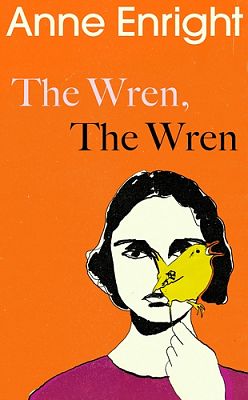
Irish author Anne Enright’s events are always a delight to attend, and last week’s talk at the Trinity Science Gallery was no exception. Held as part of the Trinity Centre for Literary and Cultural Translation’s annual “Great Irish Writers in Translation” series, the event celebrated both European Day of Languages and International Translation Day. By working with the EU National Institutes for Culture (EUNIC), this event highlighted the global reach of Irish literature through conversations between Enright and two of her European translators. Enright was joined by Polish translator Kaja Gucio and Romanian translator Lulia Gorzo, both of whom have translated Enright’s most recent novel The Wren, The Wren into their respective languages.
As Ireland’s first fiction laureate, Enright’s work has been translated into almost 40 languages. Yet the translators chosen to speak with Enright at the event were especially significant to Irish writing, as Polish and Romanian are the most spoken languages at home in Ireland, after English and Irish. Listening to both translators speak about their experience translating, it is obvious that translating is not only about language but also about translating culture. Both translators spoke about the challenges of translating Enright’s work and how environment and language can shape an individual’s thoughts and perception. It can be quite difficult to translate Ireland’s unique popular cultural references to the same capacity, not to mention translating the Irish accent, which was described as “the devil’s work”, by Gorzo.
Throughout the conversation, it became clear that translation requires remarkable creativity. One example that especially stood out was Gucio explaining one of the last excerpts she translated in The Wren, The Wren– Enright’s phrase “Louth, Actually”, a reference to the film Love, Actually. Having to grapple with maintaining the same popular culture reference, Gucio decided to switch the word Louth to Meath in the Polish edition, as the Polish word for love, miłość, sounds much more similar to Meath than Louth. While this anecdote made the audience laugh, it also highlights the meticulous work that translators have to do. At the end of the conversation, it became evident that translating is not simply a technical skill, but an act that requires cultural interpretation and understanding.
If you are interested in world literature or the global influence of Irish literature, the Trinity Centre for Literary and Cultural Translation is a great community to become involved with. Events are mostly free and open to the public, and include a Murakami Book Club, film screenings, and poetry readings. While Ireland is celebrated as a literary hub, the Centre for Literary and Cultural Translation offers insights into the reasons behind this reputation, while also showcasing other cultures through these events.






